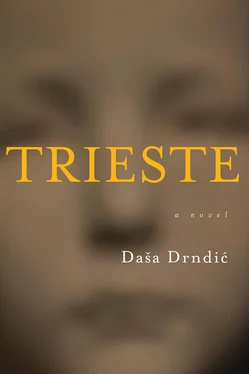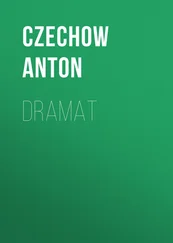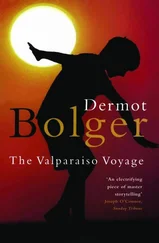
This is for the sake of remembrance. Medals and souvenirs in general. For those who have the time to remember. Remembering is best done in old age. Life is calmer then. Because fresh memories are not, in fact, memories at all, they are happenings. Except in old age memories become deceptive, distorted, and it is difficult to determine whether these (old-age) memories have ever been real.
Bruno Baar does not write home from the front. He has no time to write. He returns soon after he leaves. He says: One should adapt . He says this in Italian, because now he is speaking Italian more often and forgetting his German.
Many write. Many never return. Many go missing. That is why their letters have been preserved. Today some letters are sold at auctions, like the medals and the souvenirs.
I did not go missing. I am a journalist. I report from the theatre of war. I arrived in Gorizia in 1916, accompanied by Sig. Ugo Ojetti, *well-known Florentine fine arts and literary critic. Ojetti was assigned the task of protecting historical monuments and art works in the war zones .
Yes, for we live in a country of contemporaries who have no ancestors or heirs, because they have no memory. When we die, everything dies with us .
Here is Brother Giorgio, the regiment chaplain, a handsome man. Tall, broad-shouldered, with a warm smile and unusually temperamental, down-to-earth views. I am almost certain he joined the fray. I happen to know thousands of priests and monks who fought in the Italian Army; many were killed. That is as it should be, no matter what the Pope says and the faith preaches. So it is, too, in journalism. If you do not intend to lie, the truth is never relative .
It poured with rain during my stay in Gorizia. The largest city hotel was closed, so we dined at a more modest spot, La Posta. They served us our food in the kitchen because an Austrian shell had fallen on the dining room just before we got there. We had a fine meal: minestrone, mutton with vegetables, pudding and fruit. We drank excellent vintage Austrian wine. There aren’t wines like those any more. And finally, coffee the likes of which hadn’t been had in Europe since the beginning of the war. While we were eating, Italian and Austrian batteries exchanged salutations over the city .
We crossed the Isonzo and arrived at the Friuli heights. The sun broke through the leaden grey clouds and lit the blazing bastion of the Karst. Beyond it lay Trieste, the Italian city of longing. But before the longing of the Italians can be fulfilled, the Karst will bleed for years and years to come .
Much later Bruno Baar tells his grandchildren, he tells Ada Baar, Tedeschi by marriage, what it was like on the Soča, because his grandchildren are always pestering him, What did you do in the war, Grandfather? And because his children, too, ask, What did you do in the war, Father?
There was fighting for a second mountain, for Sabatino, Bruno Baar tells them. We were living then at Via Romagna 8. We had a beautiful view of the Isonzo. There were gardens and trees all around the house, lush greenery. Gorizia had been captured with caution, so it wouldn’t be damaged, because everyone was counting on the town, the Italians and the Austrians, as they meant to come back once the war was over. So Gorizia was only bombed a little, for tactical reasons. People went on living in Gorizia. There were hospitals here and cafés, and the artillery was in the streets at the edge of town, and there were two brothels, one for soldiers and the other for officers. The nights got chilly in late summer. There was fighting going on in the mountains, on the other side of town. The metal railway bridge was battered by shells, the tunnel running along the Isonzo caved in. The avenue of trees on Corso Italia was unscathed. There were girls in town waiting for their soldiers. After the fighting there wasn’t a single oak tree left standing on the mountain, no pine forest, nothing but tree stumps, trees split apart and the land torn up. I started making my Picolit and my Asti wines again .
When I came back, Bruno Baar tells them, sometimes in the dark we’d hear the troops marching under the window and guns going past pulled by motor-tractors. There was much traffic at night and many mules on the road with boxes of ammunition on each side of their pack-saddles and grey motor trucks that carried men. In the fall the rains came. The vineyards were thin and there were mists over the river and clouds on the mountain and the trucks splashed mud on the road and the troops were muddy and wet in their short capes. The king came through at times. He lived in Udine and came out this way to see how things were going, and things went very badly. With the rain came the cholera. But it was checked, and in the end only 7,000 soldiers died of it .
Bruno Baar speaks, but again Haya asks him, What did you do during the war, Grandfather? And she says, You are making all that up. That is Hemingway’s story, not yours .
A story is a story, says Bruno Baar. It can be anyone’s .
But the story doesn’t go like that. It meanders.
Bruno Baar does not engage in battle. Any battle. Ever.
So it is with war, Haya Tedeschi says. There are civilians in war. They do not fight. Civilians live. Civilians do their best to go on as if nothing were happening. As if life were beautiful. As if they were children .
Gorizia is still slowly coming into its own in 1916. It is shelled by the Austrian Army, by a stern parent castigating a wayward child.
They are children of Austria, my grandfather and grandmother and my mother are children of Austria. Later, Austria abandons its children and they have to adjust, right? asks Haya Tedeschi.
So the shells are falling. Bruno, Marisa, Letizia, Ada and little Carlo run down to the cellar every time the shelling starts, when flour and sugar begin spraying from the kitchen shelves and the stone floor becomes an airy dough for Marisa’s crescent rolls and macaroons, over which the members of the household tiptoe, lightly, as if flying, as if on a cloud floating beyond time. It is October 1917—25 October, 1917—when Caporetto wages the final, twelfth, battle of the Soča. Marisa sweeps Carlo up, but does not make it to the door. A bullet zings through the window, ricochets off the stone mortar and pestle, still green inside from the pesto ground in it the day before, and comes to rest in the belly of the pale-complexioned woman in a blue and black dress with white polka dots.
Marisa is taken to Laibach, where else? Gorizia, formerly the Nice of the Monarchy, is still only an island, a blotch on the no-longer-sumptuous thighs of the Empire. Marisa struggles, semi-conscious, for three months. Bruno sends packages, because the hospital telegraphs: FOOD NEEDED URGENTLY. Letizia, Ada and Carlo muck about in the cold kitchen under clouds of flour and sugar rain, as if playing in sand and mud, making white worms and little bread rolls like pigeon shit when it splats out of the sky on to one’s arm, and these, nothing like Marisa’s crescent rolls and macaroons, they send to Laibach, but Marisa is already dead. Decades later, when the wars are over, at the Military Archive in Ljubljana Haya finds a yellowed page from the local papers with a news item about the death of an unknown Slovenian woman, who “to her last breath” was calling out for her children, Otroci moji! Otroci moji! and for someone named Ada, while the nurses with their caps resembling the spread wings of swans were helpless to do anything but shake their heads, say Hier spricht man Deutsch, and fly away.
Читать дальше













